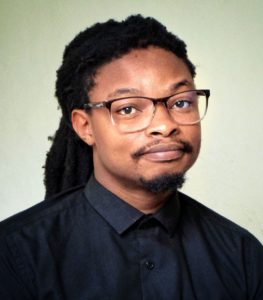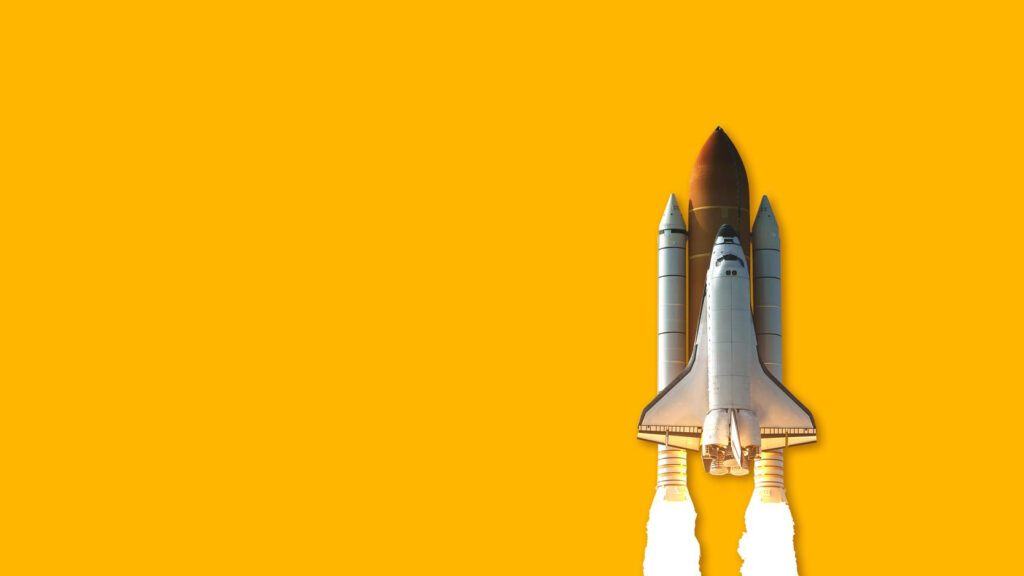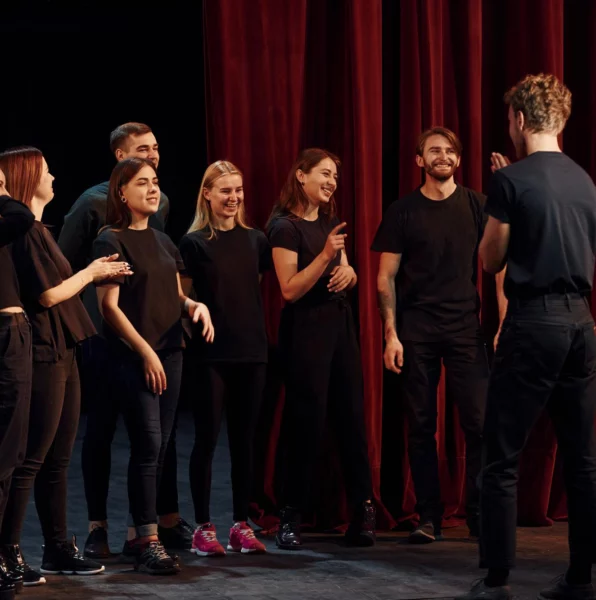Why is it important to understand science in one’s own language? The South African science communicator Sibusiso Biyela explains that communicating in one’s mother tongue leads to more trust and acceptance with regard to scientific topics.
„Lots of people have the idea that science is not for them“
Mr. Biyela, a purpose of your work is the decolonization of science. What does that mean exactly?

It is a difficult question because many people have slightly different ideas about it. To me decolonization of science means to remove the idea from people’s mind that science is only for certain people, specifically that it belongs only to Europeans or the West. This idea has been planted into people, particularly Africans through colonization and racism. To this day, lots of people have the idea that science is not for them. Maybe that is why they find it difficult and tend to have less trust in science because they have never had the chance to take part in it or to understand it in their own language. The decolonization of science in that regard changes people’s perception and helps them to see science as a part of their culture. It helps them understand how science is done or how to interpret the results of science.
You spoke about understanding science in one’s own language. Which role does that aspect play in science communication?
It comes from an idea that was articulated by the writer Ngũgĩ wa Thiong’o who talks a lot about decolonization and that language itself is a crucible of culture. There are a lot of things that come with people’s culture, like rituals and clothing. But even if you remove all those things, the language remains. I think it diminishes the value of science in African cultures if African languages are unable to participate in science. I find it unfavorable that we can talk about all other things on the continent in one’s language, but when it comes to science and technology, is it not doable. It is not because of the nature of our own languages that science has not permeated them. It is because of a concerted effort by colonialism to suppress indigenous languages in favor of English.
In postcolonial Africa there is still an issue that in order to take part in science or to talk to other people in science, scientists have to understand English, French or German. Most people can speak English or any other of these languages but it is not the same. It feels like you are trying to articulate something that is outside of your culture. The big idea of understanding science in onesome’s own native tongue is that two people from the same culture can reach each other without having to switch to English. That is also a matter of trust.
Which role does the language barrier play in the pandemic?
It plays such an important role because for example the isiZulu word for virus is the same as for bacteria. There is no differentiation. It is difficult to explain what a virus is. There is a lot of good work trying to communicate the science of vaccines and vaccinations and how Covid-19 works. But there is also a lot of conspiracy theories going around that are much more capable of influencing people because they are able to reach them in their own language.
It is difficult to do science communication in our own languages when these languages are not able to transport that science to the people who need to understand it. The little seed of doubt that comes from the inability to talk about things like viruses in isiZulu or other African languages causes a lot of issues when it comes to Covid-19 and lockdowns and other inconvenient measures. The lack of trust is problematic.
I am a native isiZulu speaker. It is one of the most popular languages in the country and lots of people speak it. As a science communicator I am very passionate about science but I find it difficult to communicate my science in isiZulu because so many technical words are unavailable.
Recently I was invited to a radio station to talk about this Covid-19. I was talking in isiZulu, but to explain certain things I had to switch to English and by that moment you lose a lot of the audience. This isn’t because they do not understand English, but they feel disconnected from the content when you cannot say it in isiZulu. They do not know if they can trust you. That creates a lot of issues in the country in terms of vaccine hesitancy and anti vaccine sentiments. Not that it would solve all the issues around science denialism if people understand for instance the science of vaccines in their native tongue, but it would help them to engage with the science.
Which languages are spoken in South Africa?
Since the end of apartheid in 1994 we have eleven official languages in South Africa. Before then it was only two languages which were recognized officially by the government. That was English and Afrikaans, a derivative of Dutch which became its own language. Science was only done in English for a very long time. Since coming into power in 1948the National Party wanted to make Afrikaans a globally recognised language. In addition to promoting their language as a language of science and technology, the nine other languages in South Africa were suppressed in such that everyone was forced to learn either English or Afrikaans. If you wanted to work or to do science or do anything of importance you could only do that in these two languages. That diminishes the other languages in some way.
What happened after South Africa became democratic?
In 1996, nine African indigenous languages were officially recognized. Our constitution says that they have to be promoted. One way of doing that is to make them languages of science and technology. The government has been committed to make that happen but that has not been successful. The issue currently is: if you are an African language speaker, the first two or three years of school will be you learning all your subjects in your mother tongue. By the fourth grade you start to learn English properly and science as well. At the same time you are learning a new language, you are also expected to learn science. That creates a lot of antagonism towards science because it is associated with English and that causes a lot of anti science behavior and anti science opinions.
How does the translation of scientific content in an indigenous African language work?
That is difficult because when you are writing an article you have to decide: Do you create a new term in order to explain it or do you use a term that people already know? A while ago I wanted to write in isiZulu about a dinosaur that was discovered in South Africa. I thought that would be much easier. What was difficult in the beginning was the term dinosaur itself. There is no word for it in isiZulu and it is difficult to explain what it is. Another problem were words for fossils or for paleontology. So lots of words had to be explained in my article because they do not exist in isiZulu.
Instead of coming up with new words I decided to translate the discovery itself. I was using for example a phrase that explains what a dinosaur is: isilwane sasemandulo, which literally means: ancient animal. I spent a lot of time explaining basic things: why it is important, where it was found or what a fossil is. I did not do this thinking the readers would not understand these basic things in English. The readers understand these things in English but they want to communicate amongst each other in isiZulu as well.
Who is reading your articles?
I have done lots of my work for the general public. These are usually people who might not even be interested in science in the first place. A few years ago I wrote an article just talking about the sun and a space mission launched by NASA. I rewrote it in isiZulu to explain a lot of things that some people might be embarrassed to ask about or things they would just not think to ask. An example of readers who reached out to me were teachers and school pupils. They said they got a new perspective on things they heard before only in English because they sound so fantastically different in isiZulu. For example, the Zulu word for planet can be umhambi, which means “wonderer” and from that one translation they learn more about planets in two minutes than they usually would in a classroom lesson. They accept it much more than other texts that do not feel like they are speaking to them.
What initiatives are there to translate science into different languages?
There is an ongoing project at the University of KwaZulu-Natal in South Africa where they have been translating a lot of medical texts and texts about physics. For a few years they have been working with translators and scientists to create lexicons and glossaries in isiZulu.
The project I am working on is trying to translate African science articles about Africa into six African languages. We are trying to use machine translation technology in terms of natural language processing and we work as well with professional translators to develop a tool that works like Google translate but for science. We are working towards a point where you can take scientific texts, put it into the machine translation tool and then it gives you science communication lay summaries. From those you can translate the texts in the six African languages as well.
We have lots of projects like that. There are, for example journalistic trainees in South Africa who are working at local radio stations and local newspapers where they cover scientific science news in their own languages. That is an initiative by the governmental department of science and technology. There is a lot of interest to decolonize science in the way that it reaches more people.






